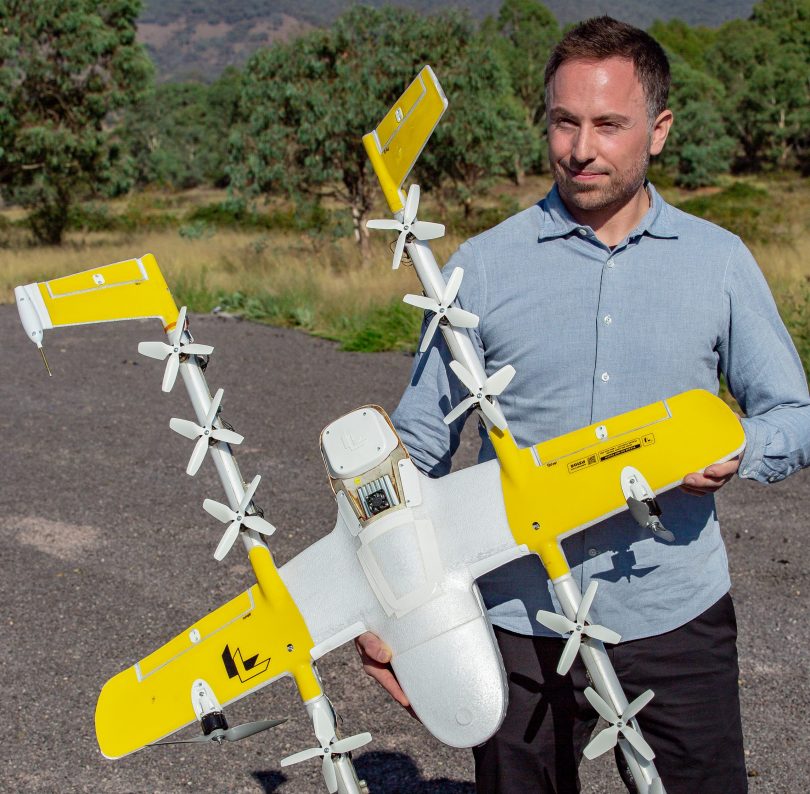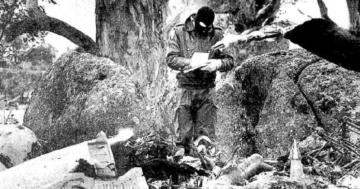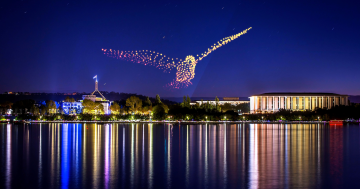
The Civil Aviation Safety Authority has introduced regulations requiring users to register drones. Photo: File.
A Canberra drone racing club says new regulations requiring drone owners to register their unmanned aircraft and become accredited pilots will be hard to enforce given the popularity of the airborne eyes in the sky.
If you are one of the many thousands of drone owners in the ACT, the new regulations mean you must now register your drone if it is being used for commercial purposes.
The regulations for drone registration and pilot accreditation have been introduced by the Civil Aviation Safety Authority (CASA) which says there is scope for hefty fines of more than $22,000 if you are caught flying an unregistered drone or aren’t accredited as a pilot.
Drone owners have until 28 January, 2021, to register to legally fly drones for business in Australia.
The fine for flying an unregistered drone is $11,100, while there will be an additional fine of $11,100 if you aren’t accredited as a pilot.
For owners who fly drones for fun, registration isn’t required.
The commercial drone registration came into effect at the end of September 2020, however CASA is allowing pilots to register their drones for free until 30 June, 2021. The registration lasts for 12 months.
Commercial use of a drone includes:
- Selling photos or videos taken from a drone.
- Inspecting industrial equipment, construction sites or infrastructure.
- Monitoring, surveillance or security services.
- Research and development.
- Any drone activities on behalf of your employer or business.
A spokesperson for Wing, the Google subsidiary operating a drone delivery service from its Mitchell base to Gungahlin, said the company supports the new regulations and stated that fees should support an open and competitive industry, however compliance will depend on an affordable fee structure.
“We support the recovery of administrative costs for safety oversight activities by the Civil Aviation Safety Authority and will fully comply with any registration or accreditation scheme required in Australia,” said the spokesperson.
“We believe a safe, fair and open regulatory system is best served by fees that reflect the actual cost of services, and are affordable enough to encourage compliance and promote growth across the drone industry, including both recreational and commercial operators.”

A Wing drone at a demonstration earlier in the year. Photo: File.
Exemptions may also be granted if you fly a very small drone or remotely piloted aircraft that weighs 2kg or less for business or as part of your job where there are specific rules that apply. This includes photographers and filmmakers, real estate agents, researchers, construction workers and tradespeople, government and community service providers.
CASA said the regulations have been introduced to ensure the safe operation of all commercial and recreational drones in Australia.
CASA is responsible for granting drone licences – sometimes including bespoke conditions – and is responsible for enforcing regulations and responding to any breaches. ACT agencies do not have a role in managing or enforcing these requirements, which fall under Commonwealth law.
Tim Crofts, founder of Canberra Multirotor Racing Club which holds regular indoor and outdoor drone racing events, said it will be extremely difficult to enforce the regulations which make it more difficult for drone users who wish to fly.
“I think most people are not going to register their drones commercially,” Mr Crofts told Region Media. “The ability to enforce the laws will become difficult as more people are building smaller and lighter drones under 250 grams, which can also avoid the regulations.
“We fly as part of the Model Aeronautical Association of Australia (MAAA) which covers aeromodelling clubs. Our membership fees also include affiliation with MAAA, whose operating procedures are endorsed by CASA.
“The main rule everyone is breaking is that when you’re flying a drone, you’re not legally allowed to pilot it from the ground without a line of sight in the air.”
Mr Crofts said most people will do the right thing, while many who have been caught are those who share their footage on YouTube and get reported.
He described his club’s race meetings as “like playing Mario Kart but flying with goggles on”.
“We started with a few friends going to parks and chasing each other’s drones and flying them like mosquitos through little gaps,” he said.
“Effectively, this is a freedom we’ve all enjoyed for five or so years and it’s slowly being taken away and sold back to us in the form of registration and accreditation.”
Find out more about how drones may be operated by recreational and commercial users across Australia on the CASA website.














